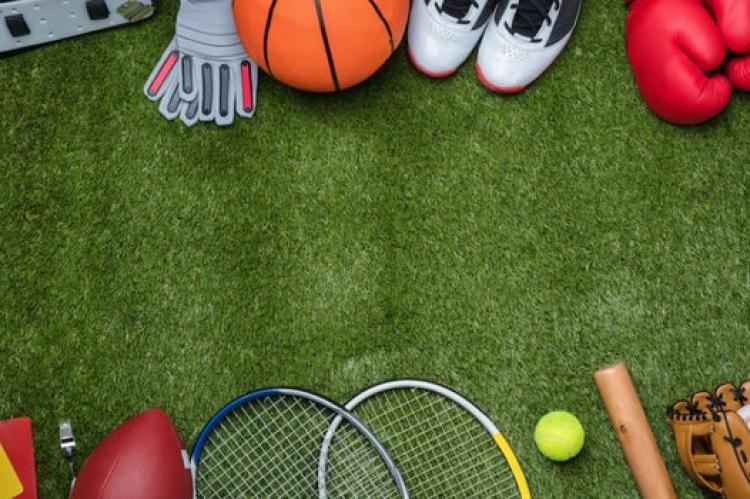Is Cannabis The Next Recovery Revolution For Pro Athletes?
According to science, cannabis provides significant benefits to athletes in both performance and recovery. Physically speaking, marijuana can reduce inflammation, alleviate pain symptoms, and improve symptoms caused by traumatic brain injuries. Those who don’t like the psychoactive effect of THC should know CBD acts as an effective analgesic and anti-inflammatory as well.
Other reviews show how cannabis also delivers a mental boost for athletes. Studies have shown training with marijuana increases focus and motivation in the gym. But it can also allow professionals and amateurs alike to reduce anxiety, depression, and tension in competition, as stated in a comprehensive 2011 study, published in the journal Sports Medicine.
“Furthermore, cannabinoids play a major role in the extinction of fear memories by interfering with learned aversive behaviors,” the study’s authors wrote. “Athletes who experienced traumatic events in their sports career could benefit from such an effect.”
This science, in conjunction with damages caused by pharmaceutical opioids and anti-inflammatories, has inspired former sports pros to speak out. Football, basketball, golf, and hockey players are among those who have advocated for professional leagues to allow cannabis as an alternative medicine and eliminate penalties around its use. By focusing on marijuana’s health and wellness attributes, these athletes have disassociated some long-standing stigmas around the cannabis plant, some of which they used to believe.
“I remember my grandma kicking my aunts and uncles out of the house for even smelling like weed,” former NBA power forward Al Harrington told Playboy. “I was taught it was a gateway drug. I’d see guys strung out on the corner, and they’d tell you that cannabis is what started them down that path. I was smart enough to know I didn’t want no part of that.”
Harrington is now a well-known figure in the cannabis industry. He’s the founder and CEO of Viola Brands, a multi-state cannabis operator that has raised tens of millions in funding. When Harrington entered the NBA, he discovered basketball’s dirty open secret — 70-80% of the league used cannabis in some fashion. Marijuana users ranked as the best players on some of his teams, Harrington said.
Following a knee surgery in 2012 that led to staph infection, pain medications disrupted his body in numerous ways. So he tried CBD, and the success of the cannabinoids opened his mind.
“For me, it was about managing pain, but it was also because when I get high it allows me to deal with a lot of stuff mentally,” he said. “Anything that goes wrong, the first thing I reach for is cannabis. I believe the plant can heal everything.”
Professional athletes suffer more injuries, bruises, and inflammation on the job than most households experience in their lifetimes. The margins between wins and losses, and whether or not they earn a lucrative contract, can be razor thin. It creates an enormous pressure to get back on the field after injury as quickly as possible, and find any advantage, however slight, in training. Tom Brady, for example, refuses to eat cheeseburgers or strawberries.
But it can also lead players to toxic behaviors that wreak long-term damages to their bodies. Former offensive lineman Eugene Monroe was alarmed by the amount of pills he consumed, which only multiplied when he ingested more pills to counteract the side effects of other pills. Eventually, he sought alternative treatment in cannabis.
“For me, the major benefits of cannabis are as an anti-inflammatory and the relief from pain, headaches and other concussion symptoms that I still have years after suffering a bunch of them,” he said. “I went from scheduling X amount of pills throughout each day to eliminating all of them. Now that I use cannabis, the only pills I take are vitamins and minerals. There’s no more pharmaceuticals.”
To their credit, sports leagues have listened. The MLB removed marijuana from its banned substances list last year. Back in March, the NFL said it would no longer suspend players for positive marijuana tests while limiting testing for the drug to once a year. The NHL does not discipline players for cannabis use as well.
Change appears on the horizon for the NBA as well. When play resumes in Orlando next month, where teams will compete inside a bubble to limit spread of the coronavirus, athletes won’t be tested for cannabis. In addition, NBA Payers Union Executive Director Michele Roberts joined the Cresco Labs board this month and previously voiced support for allowing basketball players to use cannabis.
“I think they’ll wait to see how it affects the NFL, and I don’t think it will affect the NFL at all,” Harrington said. “The NBA can’t be the only league that doesn’t change their rules. They’ll look kinda crazy.”
- Log in to post comments

